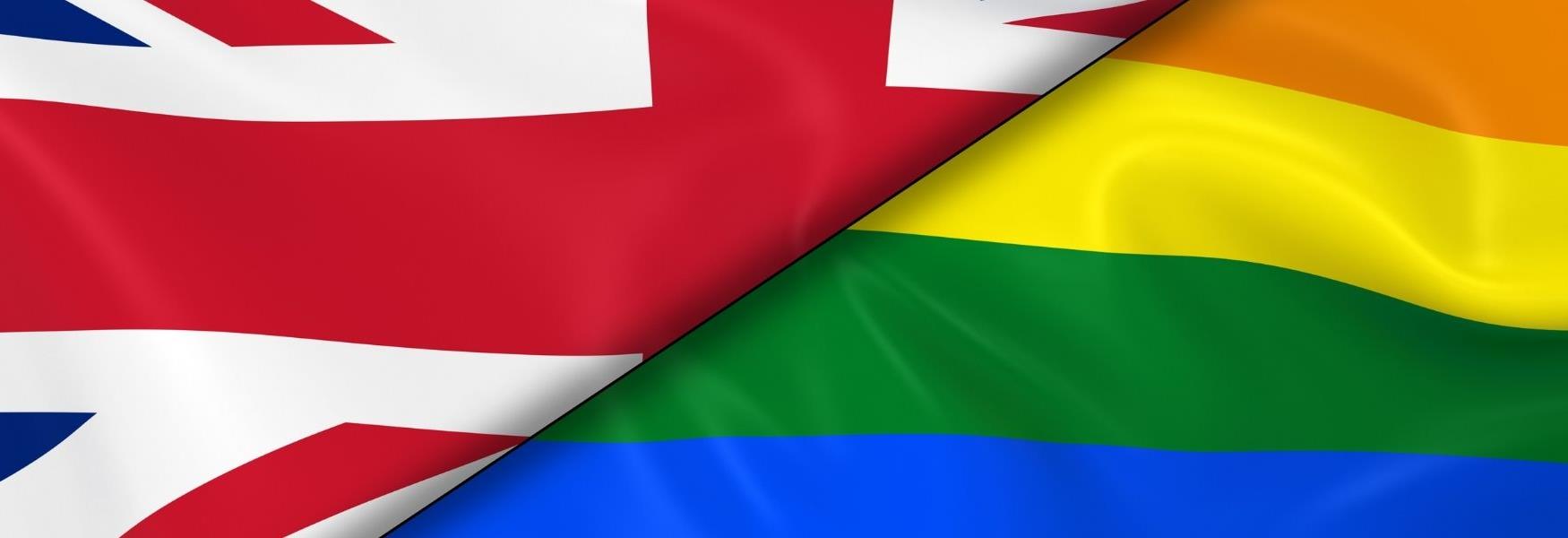To build your own Itinerary, click  to add an item to your Itinerary basket.
to add an item to your Itinerary basket.
Already saved an Itinerary?



You are here: UK History > Britain's LGBTQA+ history > Notable LGBTQA+ individuals throughout history
Though LGBTQA+ communities have been oppressed and persecuted throughout Britain’s history, they have made huge contributions to our heritage, including helping end a war and being one of the best loved of England’s kings.
Obviously, when it comes to discussing notable historical figures, we don’t know how they would have identified. However, we will be using the acronym and talking about individuals and places here to include those whose sexualities didn’t fit within the societal norms of the time.
These individuals have all made a huge impact on British history and have either shown evidence of identifying under the Queer umbrella or have actively identified as such.
Turing was a mathematician who worked with code breakers during WWII and cracked something known as the Enigma code. He is credited as shortening the war by several years. However, when it was discovered that he was gay, he was arrested and forced to endure chemical castration.
In 2013, he was posthumously pardoned and a law, which extended the same favour to other condemned gay men in history, was named for him. In 2019, he was named as one of the most iconic figures of the 20th Century and was voted to appear on a redesigned £50 note.
Wilde is known for being one of the most famous playwrights of all time and penned the Portrait of Dorian Gray which is still studied in school today. Though he was married and had two sons, he was known to have relationships with men, including Lord Bosie. He fell foul of the Blackmailer’s Charter and was tried for gross indecency. He was sentenced to two years of hard labour, during which time his wife left him.
His time in prison severely affected his health and he spent the rest of his life in Europe.
According to a book about lesbians who changed the world, Florence Nightingale was known to have had three serious relationships with women, including one of her cousins. She was said to have been so in love with her cousin Marianna that she pretended to be her brother Henry in order to avoid persecution. Nightingale never married.
Roberta Cowell was a British World War II fighter pilot and later a racing car driver. She was one of the first people to undergo gender reassignment surgery. She spent several months in a Prisoner of War camp after being captured and lived as a trans woman after surgery in the 1950s.
Known as the Grandfather of Gay Rights, he openly campaigned as a gay man in a time when homosexuality was still illegal. He was one of the founders of the North West Homosexual Law Reform Committee, he even gave out his own home address as the base of the organisation – something that put him at great personal risk. The committee was the first campaigning organisation outside of London to be set up and run by gay men and worked towards homosexuality being legalised.
Colquhoun was the first openly lesbian MP as well as the first openly LGBT member of parliament. When first elected, she was married to a man but during her stint as an MP, she moved to London with her new partner who was a woman and was outed by a newspaper. She was deselected by the party but ended up losing her seat to the opposition.
Also known as Lady Phyll, she co-founded UK Black Pride and is the Executive Director of the charity Kaleidoscope Trust.
Chris Smith became the UK’s first openly gay MP and later the first gay cabinet member after being elected in 1984. After publicly coming out, he received a standing ovation.
A model and actress, Ashley modelled for top name publications, including British Vogue before being outed as trans by the press, it is believed that a friend sold the story to a newspaper. She is one of the first people to have had sex reassignment surgery and after recovering, married a baron. Though the pair divorced and the marriage was eventually annulled.
Fashanu was Britain’s first openly gay footballer and remains one of the few male footballers to reveal their sexuality while playing professional football. After coming out, he was bullied and harassed by the press and died 8 years later. However, in 2020, he was inducted into the National Football Museum’s Hall of Fame.
One of the co-founders of the Lesbians and Gays Support the Miners Movement, Ashton also served as General Secretary of the Young Communist League. In the late 80s, he contracted HIV and died 12 days later of an AIDS related illness. He was only 26.
As one of the leading poets of WWI, Wilfred Owen is well known, particularly after dying in action one week before the war ended at the age of 25. Homoeroticism is a central element in much of his writing and his friends and relatives tried to hide some of the more obvious things from his letters and diaries but over time did say that he identified as a gay man.
Regarded as one of Britain’s greatest singers and songwriters, Mercury was the front man of the band Queen. He grew up in Zanzibar before moving to Middlesex and joining Queen. In the 70s, he was known to be in a long term relationship with Mary Austen with whom he remained close, even after they separated following his affair with a man. Later he met and formed a relationship with Jim Hutton who he lived with until his death. Mercury has been accused of both hiding and flaunting his sexuality. Some claim he identified as a gay man while others say he was openly bisexual. He contracted AIDS and died in 1991.
© Visit Heritage 2025. All Rights Reserved

.png)


